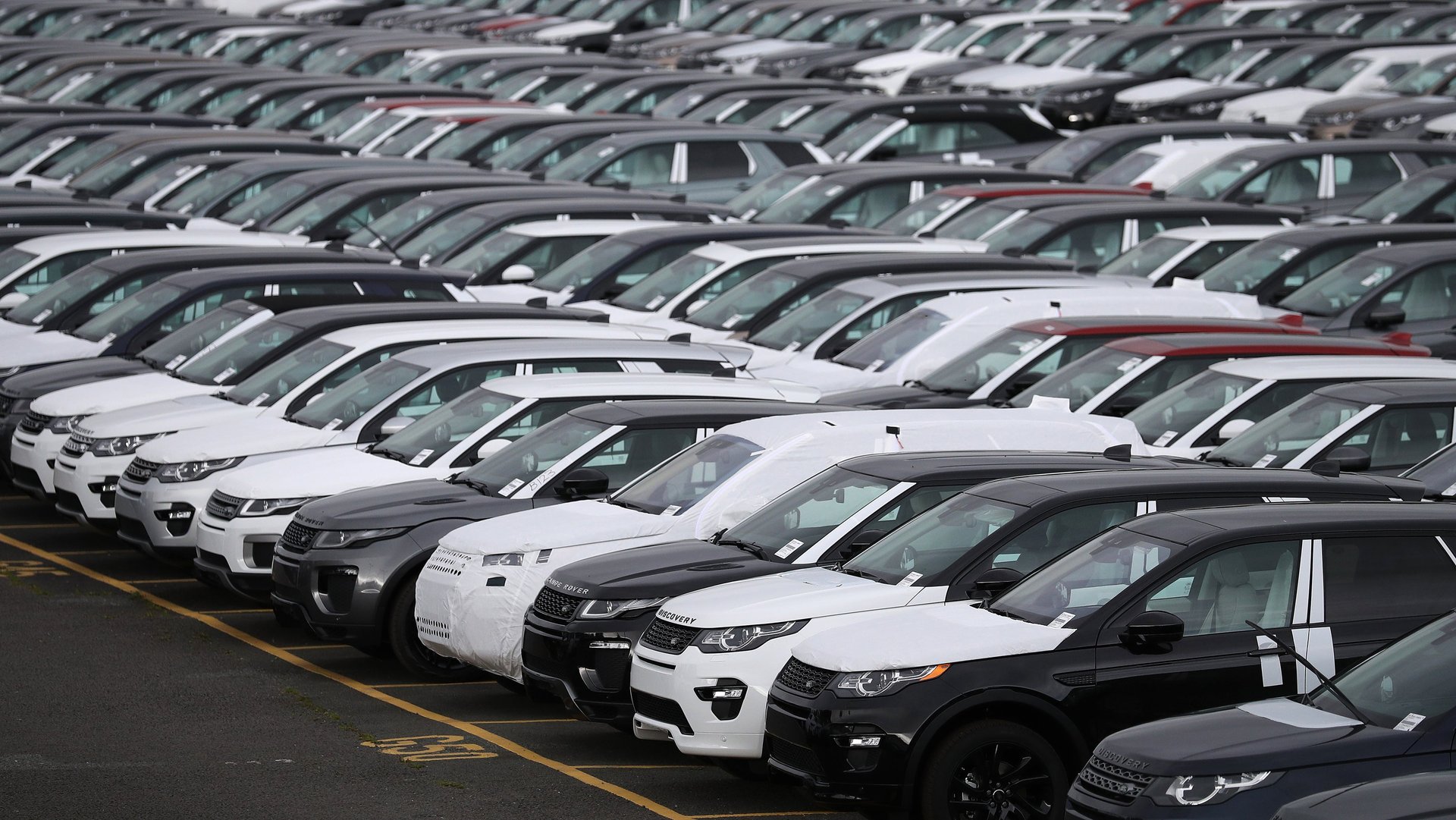Car sales in Germany and Britain show the reality of a two-speed Europe
Germany revealed its car sales figures for 2017 today—and they’re as robust as one has come to expect from the home of the automobile. Some 3.4 million new vehicles were sold (link in German) last year, up 2.7% from 2016, rising for the fourth year in a row and smashing their highest level in a decade.


Germany revealed its car sales figures for 2017 today—and they’re as robust as one has come to expect from the home of the automobile. Some 3.4 million new vehicles were sold (link in German) last year, up 2.7% from 2016, rising for the fourth year in a row and smashing their highest level in a decade.
The picture was decidedly less rosy in the UK, where, after growing for five straight years, sales dropped last year by 5.6% from the year before, to about 2.5 million new cars, according to the Society of Motor Manufacturers and Traders (SMMT).
SMMT CEO Mike Hawes said consumer confidence had been shaken by the Brexit vote, and “people’s willingness to buy big-ticket items has declined.” While he pointed out that the car market “is still close to historic highs,” he noted that rising exchange rates will ramp up the cost of cars and car parts—86% of cars bought in the UK are imported, and those made in the UK are built with mostly imported parts.
The Economist Intelligence Unit said in a note that it expects UK car sales to keep slowing through 2019, but noted that the sales drop is part of a cycle: most people who can afford a new car have bought one recently, and there’s little replacement demand as the average age of cars in the UK is under eight years old.
However, stagnant incomes, Brexit insecurity, and concerns about what’s going to happen to diesel cars in the coming years are making Brits leery of taking out credit, according to Ana Nicholls, lead automotive analyst at the Economist Intelligence Unit.
The one thing Germany and Britain have in common is a big diesel headache. Sales of new diesels plunged by 17% year-on-year in the UK, and by 7% in Germany, where the diesel engine is beloved. Diesels now make up just over 38% of the German automotive market, the lowest level since 2009.
Diesel sales are suffering across Europe since the Volkswagen emissions cheating scandal in 2015—last year in France the share of new diesels dropped below 50% for the first time in 17 years. Many EU cities are looking at imposing diesel bans in the coming years, as health fears grow over the engines’ smog-creating nitrogen oxide emissions.